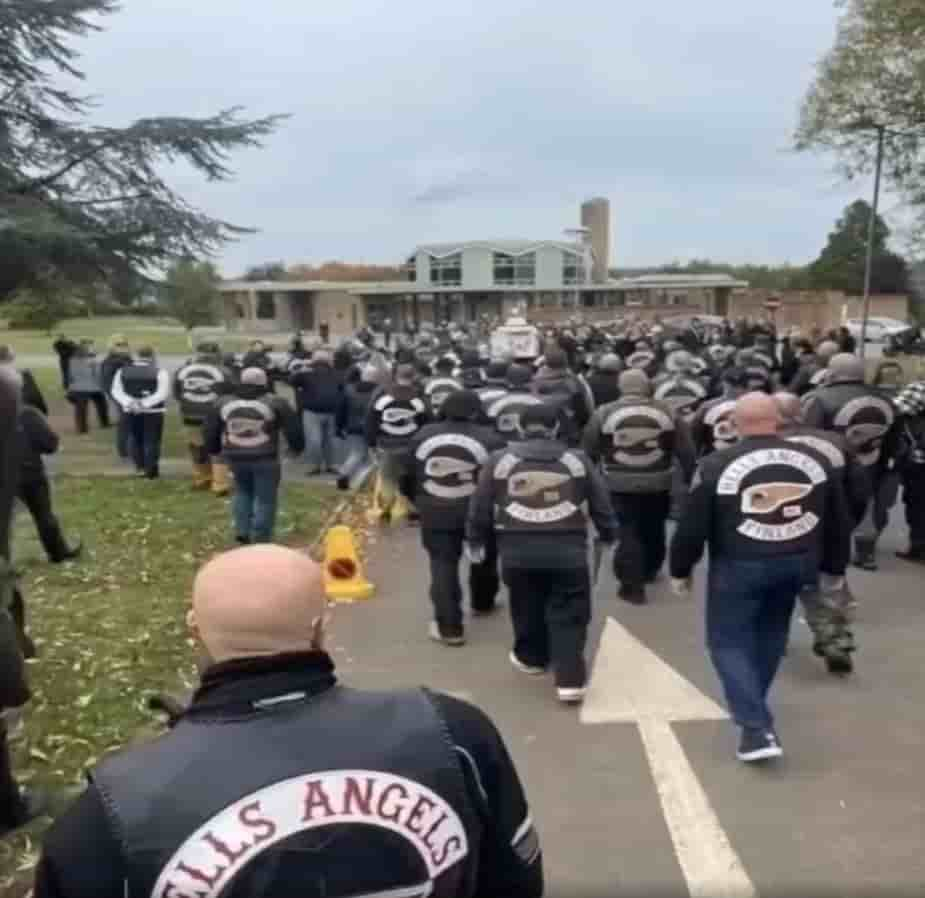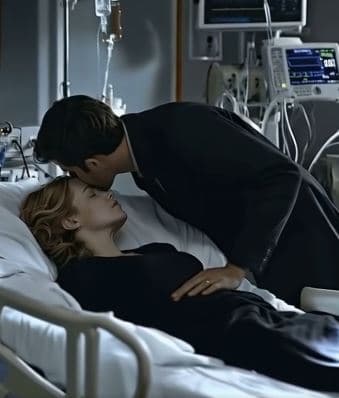12-year-old girl with a big belly was brought to the hospital. When doctors realized what was inside, they were sh0cked.
A 12-year-old girl with an extremely enormous tummy was sent to the emergency hospital. The physicians initially suspected stomach problems or maybe a tumor. However, following the ultrasound, a heavy quiet descended over the room. What they saw caused them to freeze. There was no regular pregnancy or tumor inside, just a dying flicker of life.
Her name was Kira. Quiet, skinny, and pale, she had large blue eyes and hands that were continually clutching her tummy. She was admitted to the hospital in the late evening. Her mother was crying and saying the same thing.
– I assumed it was just bloating. Gas… But she screamed in pain at night and curled up into a ball. And now she can’t even stand up.
Girl’s clothingDigestive health products
When Kira was six years old, her father abandoned her. Her mother worked as a cleaner in a shopping center, doing everything she could to provide for her daughter. They lived in poverty, yet they loved one another. No one suspected the girl was in anguish behind her grin. She persevered. She did not want to anger her mother. She believed it will pass. She sipped water and starved to keep the situation from worsening.Hospital insuranceGirl’s clothing.

Finding Mikey’s body shattered me. Reading his suicide note shattered what was left. The four names he listed were star athletes at his high school – boys who’d told my gentle son daily that the world would be better without him. When the principal called it “boys being boys” and the police said no laws were broken, I nearly lost my mind.
Then the bikers came.

Sam Reeves, a grizzled Vietnam vet who pumped gas at Mikey’s favorite convenience store, showed up at my door with an offer: “We can be there. Make sure those boys look at what they’ve done.”

At the funeral, fifty Steel Angels motorcycle club members formed an honor guard no one could ignore. Their quiet presence forced the bullies and their parents to walk a gauntlet of hardened faces staring straight through them. When one father complained, a biker named Hammer simply said, “Today’s about Mikey. You don’t like it? Leave.”

Afterward, the club visited the school. They didn’t threaten or yell – just showed photos of all the kids they’d lost to bullying. The four tormentors never returned to class. The school got a new principal and real anti-bullying programs.

Now I ride with them sometimes, my old janitor’s uniform traded for leather. When we roll up to another bullied child’s funeral, parents tell me our presence is the first comfort they’ve felt. It won’t bring Mikey back, but maybe it’ll make another parent listen when their child says school feels like hell.

Tragically, 34-year-old Courtney Ann Sanford, who was regarded as an experienced driver, perished in an automobile accident.
She chose to share a social media post on the Pharrell Williams song “Happy,” which she was listening to while driving. “This song makes me happy!” she said as the caption for a selfie she snapped.
A minute later, Courtney’s automobile, travelling at about sixty kilometres per hour, struck a truck, sending it flying into a ditch and finally into a tree. Her automobile caught fire due to the severe accident, and sadly, she was trapped inside and did not escape.
Her family was informed, and they discovered that her most recent Facebook post coincided oddly with the event. Law enforcement claims that the post was posted at 8:33 AM. We received the emergency call at 8:34 AM.

You put not just yourself but also your passengers, pedestrians, and other drivers in danger when you text and drive.
You have to give the route your whole attention. Remember that operating a vehicle is more than simply a daily pastime; it is a serious duty. Please use Facebook to SHARE this post with your loved ones.
Leslie Easterbrook’s career is a masterclass in versatility. Best known for her tough-as-nails roles in Police Academy and horror films, she shattered stereotypes and proved that talent knows no limits.

Raised in Nebraska by adoptive parents who nurtured her love of music, Leslie initially pursued opera before Hollywood called. Her breakout role in Laverne & Shirley led to Police Academy, where she transformed into the unforgettable Sgt. Debbie Callahan—a character so fierce that even the film’s producers were intimidated at her audition.
But Leslie was more than just a comedic powerhouse. She trained rigorously for her roles, from martial arts to marathon running, and even became a competitive trap shooter after an on-set accident left her with a newfound respect for firearms. Her talents extended to music, too—she belted out the national anthem at Super Bowl XVII, despite a chaotic pre-show scramble.
Beyond acting, Leslie championed causes close to her heart, supporting law enforcement and children’s charities. Married to screenwriter Dan Wilcox until his passing in 2024, she balanced Hollywood glamour with grounded Midwestern values.

Today, at 75, Leslie’s fire hasn’t dimmed. Though she’s taken fewer roles in recent years, her impact on film and television remains undeniable—a reminder that true icons never fade.
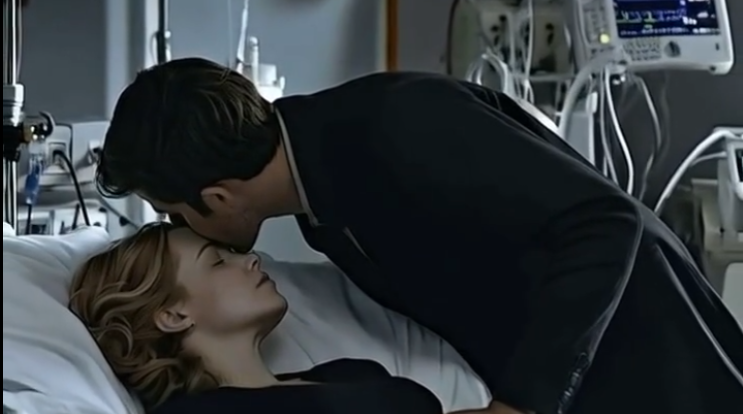
He had visited the hospital more times than he could count, each visit leaving him with the same mixture of irritation and fatigue.
Cyril always took the stairs instead of the elevator—not for his health, but to avoid polite conversation, pitying looks, and the pressure to pretend he still cared.
Today, he carried a small bouquet of white roses. Larissa, his wife, had been unconscious for weeks and wouldn’t even know they were there. Still, they served a purpose—for the nurses, the doctors, her family. They helped keep up appearances.
Every extra day she clung to life drained more of his money. The machines, the drugs, the round-the-clock care—it was a financial bleed he was tired of enduring.
Everyone else still believed in hope. Everyone except him.
What if Larissa didn’t make it? Her fortune, her estate, the business—everything would be his. The thought stirred a confusing mix of guilt and relief inside him.
When he entered her hospital room, he leaned in close to her motionless form. “Larissa,” he whispered, “I never really loved you… not the way you thought.”
His voice cracked. “This illness has destroyed me. If you’d just… slip away… things would be so much easier.”
What Cyril didn’t realize was that someone was hiding beneath the bed.
Mirabel, a hospital volunteer, had ducked under to avoid bumping into him—and had heard everything.
Later, when Larissa’s father, Harland, showed up, Cyril returned to his role as the devoted husband. Harland, exhausted with worry, asked if there was any change.
Cyril gave a practiced response, masking the truth. But Harland’s gaze lingered on him longer than usual—doubt starting to form.
Mirabel was torn. Speaking up might cost her job, but staying silent could risk Larissa’s life. In the end, she made her choice.
“He said he’d be better off if she died,” she told Harland.
Harland went pale. But he nodded slowly. “I’ve suspected something for a while.”
He immediately arranged for someone trustworthy to remain in Larissa’s room at all times.
When Cyril returned the next day, the atmosphere had shifted. Mirabel’s eyes never left him, and Harland seemed to be watching his every move. Cyril kept up the act, but before long, Harland pulled him aside.
“If you ever come near her with bad intentions again,” he warned, his voice ice-cold, “you’ll lose everything.”
Cyril dismissed it—until Larissa began to stir. Her fingers twitched. Her eyelids fluttered. And something inside Cyril cracked.
Memories came rushing back—her laughter, her strength, the way she had always believed in him. Along with the memories came a crushing wave of shame.
As Larissa slowly awakened, Cyril whispered an apology through quiet tears.
Days passed. Then weeks. Larissa grew stronger. Cyril stayed close—not because he had to, but because he wanted to.
Harland and Mirabel continued to watch over her, but they, too, noticed a change in him.
When Larissa was finally released from the hospital, she turned to Cyril and said softly, “You stayed. Thank you.”
Fighting emotion, he replied, “I’m sorry it took me this long to see what really matters.”
No one could predict what the future held. But the bitterness that once defined their relationship had given way to something fragile, something real—a chance to begin again.
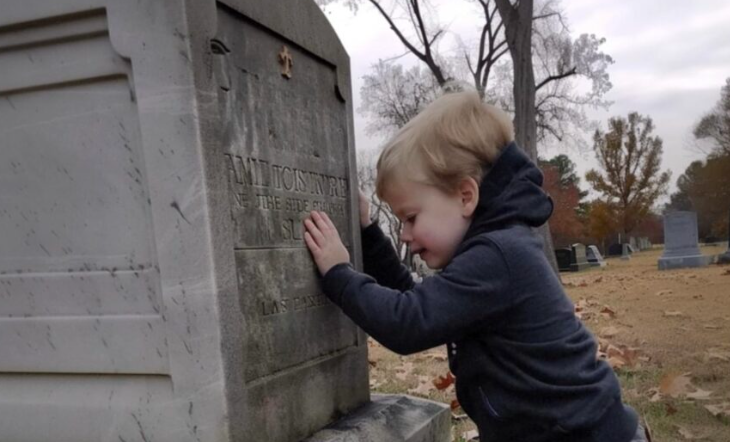
It was every parent’s worst nightmare when the Wesenbergs lost their little boy, Ted, one Sunday afternoon.
Tragically, it happened in the one place they thought was safest—home. A place where nothing should’ve gone wrong.
They found Ted in their swimming pool. His small body floated like a toy. Paul jumped in to pull him out, but it was too late. Neither his mouth-to-mouth nor the paramedics could save him.
Linda sat in silence at the funeral—pale, still, and as broken as her late son.
Days passed, and the house without Ted turned into chaos. The pain overwhelmed everything, and little Clark couldn’t take it anymore.
Paul and Linda couldn’t cope. Their grief turned into daily arguments.
Clark heard shouting from their room each night. His mother would cry. His father would blame her. She’d blame him right back.
Clark hid under the covers, clutching his teddy bear, sobbing quietly as they fought.
When Ted was around, things were different. His parents were happier, his mom was loving and warm. She would tuck him in with hugs and kisses. Now, she barely got out of bed. She said she felt sick.
Paul handled breakfast now. Toast and eggs—but it never tasted like Mom’s.
Clark missed his brother terribly. So much that he sometimes wished he could go to wherever Ted was. It felt like nobody cared about him anymore.
One night, the fighting got worse. Clark had had enough.
“Mommy! Daddy! Please stop!” he cried, running into their room. “Please! I hate when you fight!”
Linda snapped, “Look, Paul! I lost Ted because of you, and now Clark hates you too!”
Paul fired back, “Oh really, Linda? You think Clark thinks you’re so perfect?”
They didn’t stop. They forgot Clark was standing there.
“I hate you both,” Clark whispered through tears. “I HATE YOU! I’m going to see Ted—he’s the only one who loved me!”
He ran from the room, out the door, and picked dahlias from the garden—flowers he and Ted planted together. Then he ran straight to the cemetery, just a few blocks away.
Paul and Linda kept arguing, not realizing their son was gone.
At the cemetery, Clark knelt at Ted’s grave.
“I miss you, Ted,” he cried. “Please come back. Mommy and Daddy don’t love me anymore. They don’t even play football with me.”
He sat beside the gravestone, talking to Ted, pouring his heart out about burnt breakfasts, lonely days, and the way things used to be.
He didn’t notice how dark it got. The cemetery emptied, but Clark stayed—it was the first time he felt calm since Ted died.
Then he heard leaves rustling behind him. Clark looked around, frightened. The sound grew louder.
He stood up, ready to run—but several men in black robes appeared. Their faces were hidden, and they carried torches.
“Look what we have here!” one said. “You shouldn’t be here, boy!”
“Please let me go,” Clark begged, trembling.
Just then, a voice rang out. “Chad, enough! I’ve told you not to gather here like fools!”
It was an older man in his fifties. “Don’t worry, kid,” he told Clark. “These guys are harmless. They’re just kids playing cult.”
“Oh, c’mon, Mr. Bowen,” one boy sighed. “This is the only place for our ‘rituals.’”
“Try studying instead of burning your report cards,” Mr. Bowen shot back. “Now come here, kid. Let’s get you home.”
Clark trusted him and followed. At Mr. Bowen’s cabin, he sipped hot chocolate while sharing everything—Ted, the fights, the loneliness.
Back home, Linda realized something was wrong. She called Paul repeatedly, no answer.
Then she noticed: Clark was missing. It was after 11 p.m.
She panicked, checked every room, the yard—nothing.
Then she remembered. “The cemetery. He said he was going to Ted!”
She grabbed her keys and rushed out. Paul pulled up in his car.
“Clark’s missing!” she told him. “Drive to the cemetery—now!”
They arrived and ran to Ted’s grave. No sign of Clark.
“Clark!” Linda shouted. “Where are you?”
Then Paul pointed. “Linda! Look!”
A fire flickered in the distance. Voices chanted.
They rushed toward it and saw teens in black robes doing some sort of ritual.
“Oh God,” Linda cried. “Did they take Clark?!”
Paul approached the group. “Excuse me. Have you seen this boy?” he asked, holding out a photo.
One teen laughed. “Your son came to the wrong place!”
Paul grabbed him. “Tell me where he is, or I’ll break your nose.”
“Whoa! Calm down! I’m Chad! Mr. Bowen took your kid. He lives right outside the cemetery! We didn’t hurt him!”
Paul and Linda raced to Mr. Bowen’s cottage. Through the window, they saw Clark on the couch, safe, talking.
They paused when they heard him speaking.
Clark told Mr. Bowen everything—how he felt unloved, forgotten. Mr. Bowen listened and told him, “They still love you. I lost my family in a plane crash. I know what grief does. Maybe it’s time to be a little kinder to them.”
Clark nodded.
At that moment, Paul and Linda entered the room.
“I’m so sorry, baby,” Linda sobbed, hugging him.
Paul thanked Mr. Bowen with tears in his eyes. “Thank you for everything.”
“It’s nothing. I’ve been there. Just take care of each other.”
Over time, Mr. Bowen became a friend. The family began to heal. Slowly, the love returned. They learned to grieve together—and move forward.
When my dad called to invite my 12-year-old brother and me to his wedding, I thought the hardest part would be watching him marry the woman who shattered our family. I had no idea my quiet little brother was planning something that would make their big day unforgettable.
My name’s Tessa. I’m 25 now, working as a marketing coordinator and still learning how to be an adult after a childhood that ended too soon.
My little brother, Owen, is 12. He used to be the sweetest kid—leaving cookies out for delivery drivers, crying when cartoon characters got hurt. He’d proudly bring home crayon drawings and say, “Tessa, look what I made for Mom.” On Mother’s Day, he made elaborate cards full of glitter and stickers that read things like, “You’re the best mom in the universe.”
But all that changed after our dad, Evan, had an affair with a woman from work—Dana. She was all white teeth and perfect hair. My mom found out the day she came home early with a small plant from Home Depot and caught them on the couch.
She dropped that plant like it had burned her. The pot shattered. She didn’t even say a word—just walked upstairs. That was the beginning of the end.
For weeks there were fights, tears, and begging. I came home to find Mom at the kitchen table surrounded by tissues, her eyes red and swollen. She tried everything—therapy alone, nightly prayers, heartfelt letters to Dad. “Twenty-two years, Tessa,” she said. “That has to mean something.”
It didn’t.
Three weeks after serving her divorce papers, Dad moved in with Dana. Just like that, he left behind more than two decades for a woman he’d known less than a year.
That night, Owen whispered in the dark, “Does Dad love her more than us?” I didn’t know how to answer. So I lied: “He’s just confused, buddy.”
Our mom fell apart quietly. She lost 20 pounds, barely eating. She cried over coffee mugs and Tupperware lids. Every little thing reminded her of what she’d lost.
Then, a year later, Dad called to say he and Dana were getting married. “It’s a backyard ceremony. I want you and Owen there—it would mean the world.”
I wanted to laugh. Or scream. “You want us at your wedding,” I said flatly.
“Yes. You’re my children. This is a new chapter for all of us.”
A new chapter—as if we were just a rough draft.
I told Owen. His reaction? “I don’t care if the Pope invited me. I’m not going to watch Dad marry the woman who ruined our family.”
But our grandparents pressured us. “Be the bigger person,” they said. “It’s the mature thing to do.”
Eventually, Owen gave in. “Fine. I’ll go.” But his voice held something I hadn’t heard before. Something determined.
The morning of the wedding, he was quiet. Dressed and ready. Calm. A few weeks earlier, he had asked me to order something on Amazon—itching powder. “For school,” he said. I didn’t question it.
Looking back, I knew. I could have stopped him. But I didn’t.
We arrived early. Dana looked radiant in her silk robe, laughing with bridesmaids. Dad greeted us like nothing had ever happened. “You both look so grown up,” he said.
Owen smiled sweetly. “We wouldn’t miss it, Dad.”
About an hour before the ceremony, Owen approached Dana with a garment bag. “Your jacket’s on the chair,” he said. “Want me to hang it up so it doesn’t wrinkle?”
Dana smiled. “You’re such a helpful young man.”
Owen took the jacket inside. Five minutes later, he returned, empty-handed. “It’s hanging up safely,” he said.
The ceremony started. Dana walked down the aisle glowing. But within minutes, she began fidgeting. Scratching her arms. Adjusting her collar. Her smile faded.
“Do you, Dana Michelle, take Evan Robert…” the officiant began.
Dana twitched. “I… I do,” she said, but her skin was red and her hands were frantic.
Whispers rippled through the crowd. “Is she having an allergic reaction?”
Owen sat calmly, expressionless.
Dana began scratching everywhere. “I need to excuse myself,” she muttered, fleeing inside.
She returned fifteen minutes later in a plain beige dress, hair a mess, makeup smudged. “Sorry, everyone. Let’s finish this!”
The magic was gone. The ceremony rushed, awkward. At the reception, Dad asked me, “What was that? Dana’s never had reactions before.”
“Maybe polyester? Or the detergent?” I shrugged.
Driving home, Owen stared out the window. Then he said, “She didn’t cry. She was embarrassed and itchy. But she didn’t cry. Mom cried for months.”
And then, quietly: “But she’ll remember today. Like Mom remembers catching them.”
I was stunned by how deeply Owen understood. He didn’t want to ruin Dana. He just wanted her to feel—if only for one moment—what our mom had felt.
“Do you feel bad?” I asked.
“No. Things feel more even now.”
Two weeks later, Dad isn’t speaking to us. Dana’s family calls us disturbed. Our grandparents say we embarrassed them.
But I haven’t apologized. I didn’t stop Owen. I let it happen.
Maybe that makes me wrong. But I’m not sorry.
Because our mother deserved better than to be forgotten.
The Miracle at Gate B-12
Officer Andrei Volkov and his K-9 partner, Rex, were on routine patrol at Gateway International Airport when Rex suddenly alerted near Gate B-12. A pregnant woman, Ana Martinez, sat nearby, looking unwell. Rex’s behavior wasn’t aggressive—he wasn’t detecting drugs or threats. Instead, he stood protectively in front of Ana, barking gently.
Andrei trusted Rex’s instincts. As Ana began feeling contractions, she admitted she hadn’t been feeling well. Medical help was called, and it quickly became clear: Ana was in labor—early and fast.
With traffic delaying hospital transport, the team transformed the airport’s VIP lounge into a makeshift delivery room. Ana, supported by medics, Andrei, and the ever-present Rex, gave birth to a healthy baby girl right there in the terminal.
Word of the event spread quickly. Rex, the dog who sensed what no machine or human could, became a national hero. Social media exploded with praise, and Ana named her daughter Rebecca, in honor of Rex.
Years later, Rebecca grew up knowing she had been protected by a loyal dog from her very first breath. Rex continued serving at the airport until old age, honored with medals and remembered for his heart as much as his service.
When he passed, Gateway held a memorial. His legacy lived on through Ana, Andrei, and especially Rebecca—who vowed to help animals just like Rex.
Rex didn’t bark at danger that day—he barked at life.

Tom had always been a hands-on kind of guy. He thrived on challenges and loved the satisfaction of a job well done. So, when he decided to reorganize his cluttered garage, he didn’t think twice about rolling up his sleeves and diving headfirst into the task. The garage was a chaotic mess of old tools, forgotten boxes, and a towering pile of containers he’d been meaning to sort through for years.
One container, in particular, caught his eye. It was a large, dusty thing shoved into a corner, filled with God-knows-what from God-knows-when. Tom reckoned it was likely to be full of old clothes or random household items. He tried to shift the container by pushing it with his shoulder, but it wouldn’t budge. Determined, he decided to give it another push, this time with all his might.
What happened next seemed to occur in slow motion. As he pushed, the container teetered precariously for a moment before tipping over. Tom tried to jump back, but he wasn’t quick enough. The container fell, and in that split second, he braced for impact, certain that it would crush him.
But then, something extraordinary happened.
As the container crashed down, the lid popped open, and an avalanche of packing peanuts burst forth like a foamy white wave. Tom was knocked off his feet, but instead of being pinned beneath the heavy container, he was cushioned by the sea of lightweight peanuts that spilled out around him. It turned out that the container, once belonging to his late aunt who had been a craft enthusiast, was filled to the brim with the packing material she used for her delicate creations.
Dazed but unharmed, Tom lay there for a moment, staring up at the ceiling in astonishment. He couldn’t help but laugh at the absurdity of the situation. A few inches of foam had saved him from what could have been a serious accident.
Once he’d regained his composure, Tom sat up and surveyed the mess. The garage floor was covered in a thick layer of packing peanuts, looking rather like a bizarre winter wonderland. He knew it would take ages to clean up, but at that moment, he didn’t care. He was just grateful to be alive and well, all thanks to his aunt’s quirky habit of hoarding packing materials.
As he scooped up handfuls of peanuts, Tom thought about how life often threw unexpected challenges and solutions his way. This incident was a gentle reminder of the unpredictable nature of life and the importance of adaptability. If nothing else, it was a story to tell — one he imagined would elicit many laughs and eye rolls from friends and family alike.
Heaving a sigh, Tom got back to work, his resolve renewed. The garage still needed organizing, and despite the setback, he felt a surge of energy. As he worked, he imagined his aunt watching over him with a mischievous smile, proud that her eccentricity had saved the day.
By the time Tom finished the garage, the sun was setting. Tired but satisfied, he leaned against the doorframe and surveyed his handiwork. The space was now neat and orderly, with each item in its rightful place. Sometimes, he mused, life’s most valuable lessons came wrapped in the most unexpected packages — or, in his case, a container full of packing peanuts.
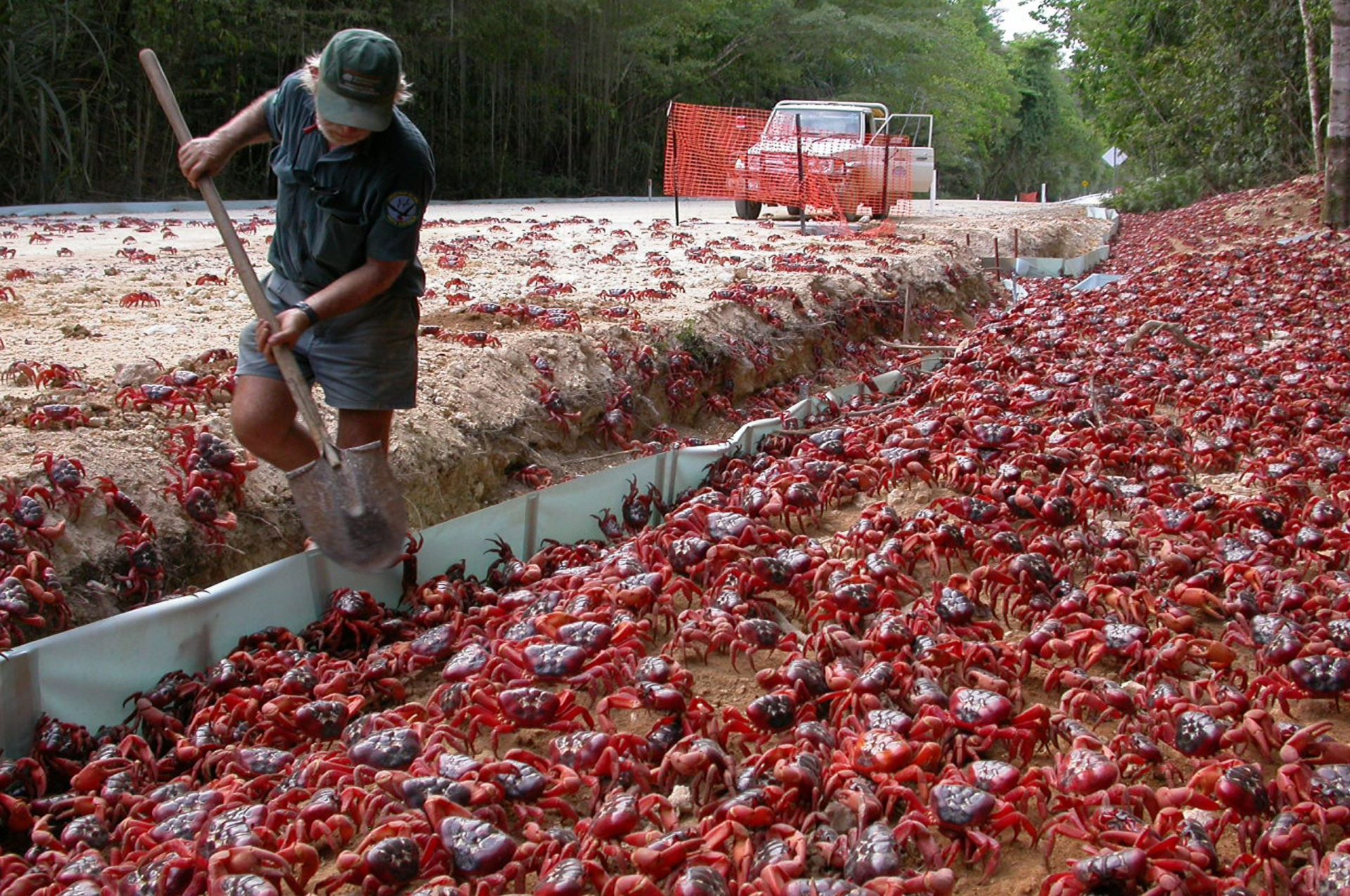
Every year, an extraordinary event unfolds on the shores of Christmas Island, a remote territory in the Indian Ocean. This small island, known for its lush rainforests and diverse wildlife, becomes the stage for one of nature’s most dazzling spectacles: the annual migration and mating ritual of millions of red crabs. This breathtaking event not only transforms the island into a vibrant sea of red but also captivates the hearts and minds of those fortunate enough to witness it.
The red crab migration is a natural phenomenon that has fascinated scientists and nature enthusiasts alike. It begins with the first heavy rains of the wet season, typically between October and December. This seasonal change triggers a primal urge in an estimated 40 to 50 million red crabs residing on the island to embark on a remarkable journey from the forest to the coast.
The migration is a testament to the incredible navigational abilities possessed by these terrestrial crabs. Overcoming various obstacles, such as rocky terrain and man-made structures, the crabs march in unison towards the ocean, driven by an ancient instinct to reproduce. The synchrony of their movement is both awe-inspiring and humbling, offering a glimpse into the intricate workings of nature.
As the crabs make their way to the ocean, the island’s landscape is transformed. Roads, paths, and beaches become a crimson carpet, teeming with life. Local authorities often close roads to ensure the safety of the crabs, allowing them to continue their journey unobstructed. This annual migration has become an integral part of the island’s identity, drawing tourists from around the world eager to experience this natural marvel.
Upon reaching the coastline, the male crabs are the first to dip into the ocean, rehydrating and replenishing themselves. Following this, they dig burrows into the sandy beaches to await the arrival of the females. Once the females arrive, a courtship ritual ensues, culminating in the mating process. This is a pivotal moment in the migration, as it ensures the continuation of the species.
After mating, the males begin their return journey to the forest, while the females remain in their burrows for about two weeks, nurturing their developing eggs. At the climax of this natural spectacle, the females emerge during the early morning high tide, releasing their eggs into the ocean. This moment is a culmination of their arduous journey and marks a new beginning for the next generation of red crabs.
Thousands of tiny crab larvae are released into the sea, where they face the challenges of the marine environment. Only a small fraction will survive to adulthood and return to the island to continue this timeless cycle. Despite the odds, the continuation of this ritual is a testament to the resilience of the species and the delicate balance of nature.
For those who witness it, the red crab migration on Christmas Island is a powerful reminder of the wonders of the natural world. It showcases the interconnectedness of life and the beauty inherent in the rhythms of nature. This grand spectacle is not just an event but a celebration of life, urging us to appreciate and protect the fragile ecosystems that make such marvels possible.
 Fact Stream Daily
Fact Stream Daily

